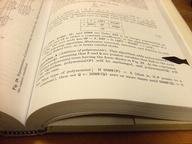Quiz Answer Key and Fun Facts
1. During what time period did John Dryden write?
2. John Dryden is usually classified as which type of poet?
3. John Dryden was England's first official poet laureate.
4. John Dryden was a second cousin once removed of what other English satirist, who once proposed preventing the children of poor Irish people from being a burden by eating them?
5. Dryden's "Heroic Stanzas" was an elegy for what English general and statesman who once held the title of "Lord Protector"?
6. Dryden wrote what royalist panegyric welcoming the reign of King Charles II?
7. What poem by John Dryden commemorated the year of 1666, which saw a great British Naval victory over the Dutch and the Great Fire of London?
8. Considered to be one of the finest satires in the English language, "Absalom and Achitophel" uses an allegory drawn from the Bible. Absalom was the rebellious son of what King of Israel?
9. "Nor is the people's judgment always true: / The most may err as grossly as the ____." What word is missing from this rhymed couplet from "Absalom and Achitophel"?
10. What poet, who would eventually succeed him as poet laureate, did John Dryden mock in "Mac Flecknoe"?
11. "Thus man by his own strength to Heaven would soar: / And would not be oblig'd to God for more. / Vain, wretched creature, how art thou misled / To think thy wit these god-like notions bred!" Who is John Dryden criticizing in these lines from "Religio Laici"?
12. What poem did John Dryden write to commemorate the death of Charles II?
13. John Dryden's poem "The Hind and the Panther" coincides with his conversion to what religion?
14. "Three Poets, in three distant Ages born, / Greece, Italy, and England did adorn. / The First in loftiness of thought surpass'd; / The Next in Majesty; in both the Last. / The force of Nature cou'd no farther goe: / To make a Third she joynd the former two." This is John Dryden's epigram on what well-known Puritan poet?
15. John Dryden's poem "Alexandra's Feast, or the Power of Music" was written to commemorate the feast day of which saint, who is traditionally credited with instituting Christian sacred music?
16. John Dryden, with Nathaniel Lee, wrote an adaptation of what play by Sophocles?
17. John Dryden's most-performed play, "All for Love", focuses on the last hours of the lives of which two lovers?
18. Which of the following plays by John Dryden did Samuel Pepys slam in his diary, calling it "very smutty"?
19. John Dryden wrote an elegy for what young poet, whose 1681 "Satires upon the Jesuits" he admired?
20. Dryden died two months after writing what collection of translations of medieval and classical poetry?
Source: Author
skylarb
This quiz was reviewed by FunTrivia editor
looney_tunes before going online.
Any errors found in FunTrivia content are routinely corrected through our feedback system.

